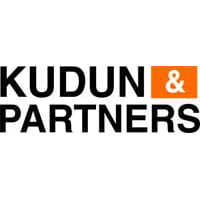
China 2019

Lead counsel, General Motors China | GM China Investment





Riccardo Ventura
Lead counsel, General Motors China | GM China Investment
Lead counsel, general manager Europe | General Motors Financial (GMF)
Riccardo Ventura started his career in private practice where stayed for 13 years, gaining experience and specialising in M&A, joint ventures and commercial transactions. In moving to the in-house sector,...
The restructuring of Opel Group and the sale of Opel to Peugeot.
It is a relationship of counsel with client. As such, it must be based on the best standards of the legal profession, requiring strong legal background and integrity, which ultimately means reliability. The peculiarity of the in-house relationship is that we are employees of a unique client and as such we are expected to have deep knowledge of the business and of the culture of its people. This is critical to enable effective, understandable legal advice and to suggest real alternatives when business plans face legal obstacles.
GM legal staff have adopted an e-billing system that ensures a consistent approval process and cost control. We also use an online database of all matters handled by GM legal staff globally, that permits a mutual update of the lawyers involved, an interface with the e-billing system and the retention of information.
It’s hard to predict the future, especially on technology, but in the long term I expect a sophistication of “practical law” online tools that will compete to a large extent with law firms. Maybe law firms should embrace the challenge and start to work at their own tools, instead of leaving their development to publishers.
The rapid evolution of regulations on emissions and new energy vehicles is probably the most significant for the automotive business.
The automotive industry is extremely complex: it requires massive investments, it’s exposed to safety risks, it needs intense labour, and it is often a preferred target of media and all sorts of activists, including biased and questionably motivated people. So, I would say that stress management and patience are specific requirements.
FOCUS ON… Neutrality and other misbeliefs in the choice of law
The choice of law is an evergreen topic of international legal practice. It should be based only on careful legal analysis, but often the parties simply insist on having the laws of their respective countries. This approach generates pointless arguments, at times ending with questionable compromises where the choice of law is traded with concessions on business matters, or law and venue of a third, completely unrelated country, is supposed to give the benefit of “neutrality”. This is not a dissertation on international private law, but rather a sample of misleading dynamics observed in this field, with some practical observations and hints. Choosing your home country law: The choice of law of the country where you are qualified can be a sensible approach to save the cost of hiring foreign counsel. However, the parties must carefully consider, case by case, whether the applicable rules of their home country really suit their interests, being open to consider alternatives. The law of the country of the other party might turn out to be more favourable in view of the scope of the contract. Of course, foreign law requires the review of the contract by a foreign qualified lawyer, but it is undoubtedly money well spent. The wrong belief of neutrality: Choosing the law of a country which has no connection with either party or the scope of the contract, simply on grounds that it is “neutral” is a notion often proposed by non-lawyers, that lawyers should reject. All laws concerning contracts are equal on nationalities (maybe except for some laws based on religion, giving privileges to their followers). Neutrality is not a real value here and can bring only doubts and bad surprises. Favouring certain categories and limitations: The laws of certain countries are stricter than others in the protection of specific rights (like intellectual property), or of the interest of categories like distributors, or set forth limitations, or require cumbersome formalities for the execution of contracts. The parties should consider their position in the contract, their interests and the specific rights that they want to be able to enforce in order to make a proper choice. Connection with the scope of the contract and consistency with mandatory rules of law: Another important point is the connection with the scope of the contract in relation to mandatory rules of law. For instance, if the shareholders of a company incorporated in Japan want to regulate its governance beyond the content of the articles, they should want to apply Japanese law to the agreement, rather than the laws of their countries of origin. Such choice will ensure the establishment of appropriate governance bodies, accurate mechanics for their appointment, correct formalities for the transfer of shares, enforceable rights and obligations that must necessarily comply with local company law. On the contrary, the application of templates or principles based on the company law of another country may create conflicts with the local mandatory rules and obstruct the implementation of the agreement. Alignment with the venue of litigation: A key point to consider is the alignment with the choice of the parties on the jurisdiction, or the place of arbitration. If the parties choose PRC laws and jurisdiction or arbitration in Shanghai, in cases of disputes they will be able to engage easily with local litigators who are capable of handling both the procedure and interpretation of the contract. They can also rely on local judges or arbitrators who have the appropriate legal background. If PRC laws are associated with arbitration in Singapore, the parties will have to appoint both Singaporean and Chinese lawyers, and the arbitrators in Singapore will need legal opinions from independent Chinese lawyers, adding complexities and costs. Clearly, all these thoughts must be balanced case by case. The only constant rule in this field is that there is no single choice that fits all.